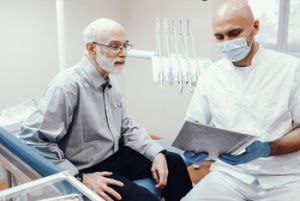Enduring unbearable tooth pain can feel like braving a storm of suffering and agony. “Unbearable tooth pain, what to do” is a quest many embark upon as this universal malady holds the potential to strike anyone at any time, significantly impacting daily life and overall well-being. This comprehensive guide aims to illuminate the path for those trapped in the painful grips of dental distress, delving into the myriad of solutions and strategies one can employ to alleviate such distressing conditions. We’ll explore a spectrum of immediate relief remedies and underscore the importance of seeking professional consultation and advanced treatment options to address the root causes and ensure long-lasting respite and optimal oral health.
Understanding Tooth Pain:
A comprehensive understanding of tooth pain is pivotal to beginning our journey through unbearable tooth pain. The term’ tooth pain’ encompasses a myriad of sensations, ranging from mild discomfort to severe, debilitating agony, often culminating in what many describe as unbearable tooth pain.
Definition and Causes:
Tooth pain, at its core, is a distressing sensation emanating from the dental region. This distress can stem from numerous sources varying in intensity and nature. One may experience a sharp, stabbing pain, a constant throbbing pain, or a dull ache, each symptomatic of different underlying conditions.
Tooth Decay: Tooth decay is a predominant culprit behind unbearable tooth pain. It’s a gradual process where the tooth’s enamel is eroded by acids produced when plaque bacteria break down sugar in your mouth. As decay progresses, it infiltrates deeper layers of the tooth, potentially reaching the nerves and eliciting severe pain.
Gum Disease: Gum disease is another prolific agent of tooth discomfort. It is an inflammatory condition affecting the tissues surrounding the tooth, often leading to symptoms like soreness, redness, swelling, and, in advanced stages, unbearable tooth pain.
Abscessed Tooth: A tooth abscess can be a source of excruciating pain. It’s an advanced infection located at the tooth root or between the gum and a tooth, typically from severe tooth decay, gum disease, or a broken tooth.
Broken Tooth: A broken tooth, stemming from either trauma or decay, can expose the nerve inside the tooth, making it highly sensitive and prone to unbearable pain, especially when exposed to hot or cold foods.
Other Causes: Various conditions, such as impacted teeth, erupting teeth, dental fillings, or abnormal biting, can also lead to varying degrees of tooth pain.
Importance of Addressing Tooth Pain:
Addressing tooth pain promptly is imperative. Neglecting minor toothache pain can escalate to serious conditions, requiring more extensive and often more expensive treatments. More so, early intervention can prevent the transformation of manageable discomfort into debilitating, unbearable tooth pain that can significantly impair one’s quality of life.
The physiological impact of unbearable tooth pain extends beyond the affected tooth, potentially affecting overall health. The relentless pain can interfere with sleep, diminish appetite, and induce stress, the repercussions of which resonate throughout the body.
Furthermore, severe tooth pain can be a harbinger of systemic infection, capable of travelling to other parts of the body and inflicting further damage. In the gravest of circumstances, untreated dental infections can even be life-threatening, underscoring the importance of addressing tooth pain without delay.
The Human Element:
The human experience of unbearable tooth pain is not solely a physiological phenomenon; it intertwines with the psychological, impacting mood, mental health, and overall well-being. The constant struggle with pain can induce feelings of helplessness and frustration, overshadowing the joys of daily life and straining one’s mental resilience.
Unveiling the Mysteries:
By understanding tooth pain’s nature, causes, and ramifications, we’re better equipped to combat it, adopting preventive measures and seeking timely intervention when needed. Unravelling the complexities of unbearable tooth pain illuminates the path to relief and recovery, enabling us to reclaim our lives from the clutches of dental distress.
Immediate Relief Options:
When faced with unbearable tooth pain, immediate relief becomes the quintessential solace. Before we can secure a professional consultation, one can employ several strategies and solutions to relieve unbearable tooth pain.
Over-The-Counter Pain Relievers:
Over-the-counter (OTC) pain relievers are many’s first line of defence against throbbing tooth pain. Medications like paracetamol or ibuprofen can offer temporary respite, reducing pain and inflammation. It is crucial, however, to use these medications as directed, avoiding exceeding the recommended dosage, which could lead to adverse effects. These solutions provide transient relief, allowing time to seek professional guidance to address the hidden causes of the tooth pain.
Cold Compress:
In the pursuit of immediate comfort, a cold compress proves to be an invaluable ally. Applying a cold or cloth-wrapped ice pack to the painful area for 15-20 minutes can alleviate swelling and numb the pain. The cold compress constricts blood vessels in the vicinity, diminishing pain and inflammation. This method is particularly effective for pain emanating from trauma or a broken tooth.
Clove Oil:
Heralded for its analgesic properties, clove oil can relieve unbearable tooth pain. Applying a small amount to a cotton ball and gently dabbing it on the painful area can numb the pain, thanks to the eugenol in clove oil, a natural anaesthetic. However, caution is advised, as excessive use can irritate the oral tissue.
Saltwater Rinse:
A saltwater rinse is a traditional yet effective remedy for tooth pain relief. Mixing half a teaspoon of salt in 240ml of warm water and swishing it around the mouth for a few minutes can alleviate inflammation and wash away irritants. This solution can soothe a sore tooth and gum area, offering a reprieve from the discomfort.
Avoiding Certain Foods:
When enduring unbearable tooth pain, steering clear of extremely hot or cold foods and beverages can prevent exacerbation of the pain. Similarly, sugary foods should be avoided, as they aggravate and intensify the pain.
The Temporariness of Immediate Relief:
While these options provide a semblance of immediate relief from unbearable toothache pain, they are no permanent solution. These are temporary measures, a soothing respite meant to bridge the gap until professional advice and treatment can be obtained. The underlying causes of the pain, whether tooth decay, gum disease, an abscessed tooth, or other conditions, necessitate professional intervention.
 Seeking Professional Help:
Seeking Professional Help:
When confronted with unbearable tooth pain, reaching out for professional help becomes crucial for alleviation and healing. The importance of consulting a dentist when faced with such pain cannot be overstated, as it ensures that the root cause is correctly identified, accurately diagnosed, and effectively treated.
Importance of Timely Consultation:
Proactive consultation with a dental professional is indispensable. Unbearable tooth pain often signals underlying dental issues, potentially severe and requiring immediate attention. Timely consultation enables early diagnosis and intervention, potentially saving the affected tooth from further deterioration and preventing the pain from escalating into an unmanageable ordeal.
Role of Dental Professionals:
Dentists and other dental professionals possess the necessary knowledge and skills to address and remedy the complexities of unbearable tooth pain. Whether it’s throbbing pain due to an abscessed tooth, tooth decay sensitivity, or gum disease discomfort, a dental professional can offer the most appropriate and effective treatment solutions tailored to individual needs and conditions.
Emergency Dental Services:
In instances where unbearable tooth pain is accompanied by signs of infection, such as swelling and fever, or in cases of trauma, immediate access to emergency dental services is crucial. An emergency dentist can provide swift and efficient treatment to alleviate pain, treat infections, and address urgent dental issues, preventing further complications and potential damage.
Treatment Options and Procedures:
Depending on the diagnosed condition, dental professionals may recommend various treatments upon consultation. This could include dental fillings for cavities, root canal treatment for infected pulp, extraction for irreparably damaged teeth, or periodontal treatments for advanced gum disease. Each of these treatments aims to eliminate the source of the pain and restore oral health.
Post-Treatment Care and Rehabilitation:
Once the immediate issue is resolved, dentists also play a pivotal role in outlining post-treatment care strategies and rehabilitation plans. Adherence to prescribed medications, follow-up visits, and compliance with recommended oral hygiene practices are vital components in ensuring complete recovery and preventing the recurrence of unbearable tooth pain.
Prevention and Oral Hygiene:
Embarking on a journey towards oral wellness begins with embracing meticulous prevention and oral hygiene practices. These practices act as the shield protecting against the onslaught of unbearable tooth pain, fostering an environment conducive to long-lasting dental health.
Foundational Oral Hygiene Practices:
- Regular Brushing: Initiating a regimented brushing routine with fluoride toothpaste is the cornerstone of optimal dental health. Brushing twice daily eradicates plaque and food remnants, thwarting tooth decay and gum disease. Fluoride toothpaste fortifies tooth enamel, warding off cavities and reducing the risk of tooth pain.
- Flossing: Incorporating daily flossing clears the inaccessible interdental spaces, removing food particles and plaque and thus preventing the buildup of harmful bacteria, which can lead to tooth decay and gum disease.
- Mouthwash: Rinsing with an antiseptic mouthwash post brushing and flossing further ensures a clean oral cavity, combating bacteria and maintaining gum health.
 Regular Dental Check-ups and Cleanings:
Regular Dental Check-ups and Cleanings:
Scheduling regular dental check-ups and professional cleanings is paramount. These check-ups act as preventive screenings, enabling the early detection of potential dental issues, thus averting the progression into severe conditions and unbearable tooth pain. Professional cleanings rid the mouth of hardened plaque, safeguarding the teeth and gums against infections.
Diet and Nutrition:
Maintaining a balanced diet is crucial for dental health. A diet rich in calcium, phosphorus, vitamin D, and vitamin C strengthens the teeth and gums, enhancing their resilience against infections and decay. Avoiding excessive consumption of sugary foods and acidic beverages is also pivotal, as they can expedite tooth erosion and decay.
Hydration:
Staying adequately hydrated is essential for oral health. Water acts as a natural cleanser, washing away food particles and bacteria, and it also aids in maintaining saliva production, which is vital for neutralising acids and protecting the teeth from decay.
Avoidance of Tobacco and Alcohol:
Refraining from tobacco and excessive alcohol consumption is integral for maintaining oral health. These substances can lead to various dental problems, including gum disease, tooth decay, and oral cancers, all manifest as unbearable tooth pain over time.
Protective Gear:
Utilising protective gear such as mouthguards during sports or physical activities can prevent traumatic injuries to the teeth, averting emergencies and the resultant unbearable pain.
Conclusion:
Embarking on a journey of dental wellness is an investment in oneself, a commitment to fostering an environment where every tooth thrives and every smile radiates the brilliance of health and vitality. It is about creating a symphony where every note of prevention, every chord of hygiene, and every rhythm of professional care harmonise to compose the melody of dental harmony and holistic well-being.
However, when the shadows of dental distress loom and the waves of unbearable tooth pain crash upon the shores of our lives, remember, help is just a call away. Reach out to Port Macquarie Dental Centre at (02) 6105 9853. Our dedicated and experienced professionals are here to guide you through the storm and provide expert advice, effective treatment solutions, and compassionate care, leading you back to the sanctuary of oral wellness and tranquillity.
Don’t let unbearable tooth pain overshadow your days. Act now! Let’s walk together on the path to dental serenity, where every step is a stride towards a pain-free, healthier, and brighter smile.
Note: Any surgical or invasive procedure carries risks. Before proceeding, you should seek a second opinion from an appropriately qualified health practitioner.




